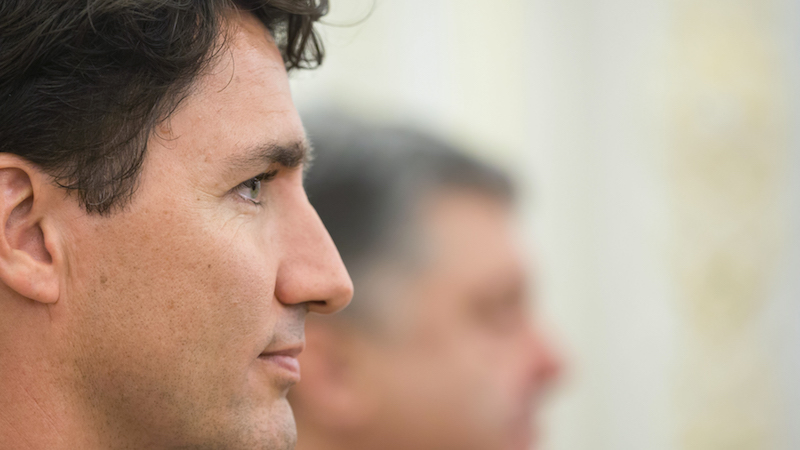It was always a perverse bargain. To get oil-producing states on board with his climate plans, Canada’s Justin Trudeau promised them a big pipeline.
So desperate was he to secure the Trans Mountain expansion, the Canadian government offered to buy out Kinder Morgan for C$4.5 billion ($3.5bn).
But on Thursday, as Kinder Morgan’s shareholders approved the deal, the federal court of appeal blocked the project. Bombshell. The Vancouver Sun has a decent explainer.
Almost immediately Rachel Notley, premier of oil producer Alberta, announced the state was pulling out of Trudeau’s federal climate plan until the pipeline got back on track.
Campaigner and academic Tzeporah Berman reminded Trudeau on Twitter he could back out of the pipeline deal for $10 million. Instead, the prime minister doubled down, assuring Notley he stood by the Trans Mountain expansion.
So….in the purchase agreement any party can walk away with a $10million penalty. This might be the time to invoke that clause @JustinTrudeau. $10 million seems a small price to pay for $10 billion mistake #StopKM #cdnpoli #bcpoli
— Tzeporah Berman (@Tzeporah) August 30, 2018
Today I spoke with Premier @RachelNotley – and reassured her that the federal government stands by the TMX expansion project and will ensure it moves forward in the right way.
— Justin Trudeau (@JustinTrudeau) August 30, 2018
Other states and provinces are already pursuing climate policies, but Alberta’s tar sands are Canada’s most significant source of pollution. As Notley put it: “Without Alberta that [federal climate] plan isn’t worth the paper it’s written on.”
There is an international dimension too: China could potentially sue the government to protect its commercial interests in tar sands.
How much longer can Trudeau hold this fragile compromise together? And what comes next?
Kicking offsets
UN Climate Change came under fire for a jokey video promoting carbon offsets this week. The advert was swiftly taken down, after viewers complained it mocked greener lifestyle choices like giving up meat and flying.
Comments mainly focused on the video’s flippant tone, but there is a deeper issue: what future is there for the Clean Development Mechanism that generates these credits?
Carbon Market Watch is launching a campaign to scrap the Kyoto-era carbon market, citing weak environmental integrity. Others see some role for it in the Paris Agreement – and UN climate chief Patricia Espinosa touted its successes in a press release on Friday. Something to watch in “Article 6” negotiations at next week’s Bangkok talks.
See you there?
Speaking of Bangkok, I will be at the talks and sending a daily newsletter out to all of you. Send tips, rumours and questions to my email or Twitter @climatemegan.
Climate conversations
- We need all sectors of society to take climate action up a level – Patricia Espinosa and Anne Hidalgo
- Heavyweight help needed at the Green Climate Fund – Niranjali Manel Amerasinghe and Joe Thwaites
Call in the cavalry
Poland is a generous host when it comes to UN climate talks, taking on the responsibility for the third time in ten years. But its coal-loving politics make climate advocates nervous.
They may be reassured to see Michał Kurtyka, top official for the next summit in Katowice, drawing on the expertise of former Cop presidents.
Kurtyka convened a meeting with France’s Laurent Fabius and Morocco’s Salaheddine Mezouar in Paris on Monday, to pick their brains on “challenges, threats and the opportunities for the international community”.
Quick hits
About those challenges…
French president Emmanuel Macron is one of the most vocal champions of the Paris Agreement. His green credibility took a hit this week when environment minister Nicolas Hulot resigned on live radio.
“I don’t want to lie to myself any more. I don’t want to give the illusion that my presence in the French government shows that we are doing what it takes to face these challenges,” he said.
